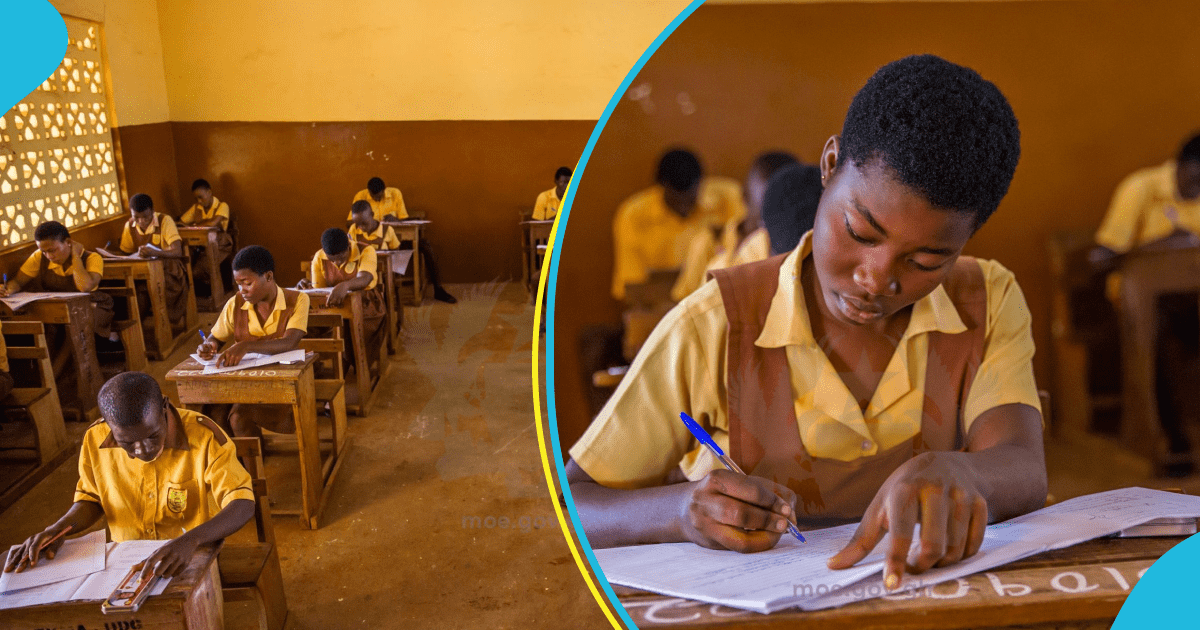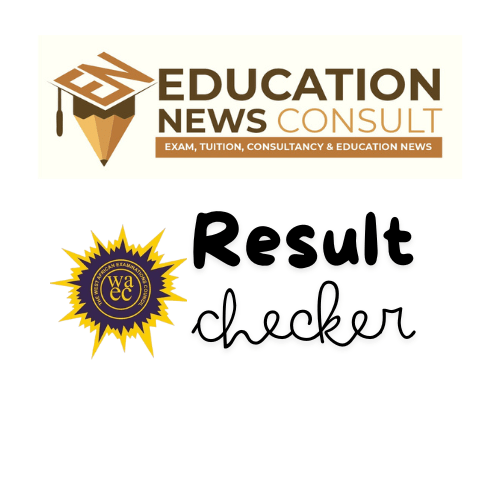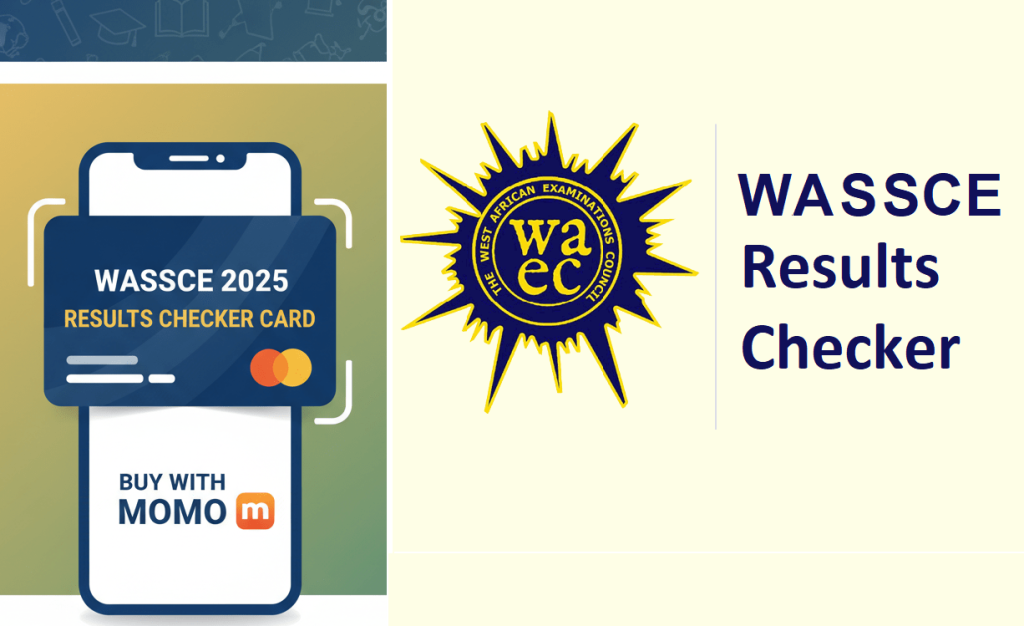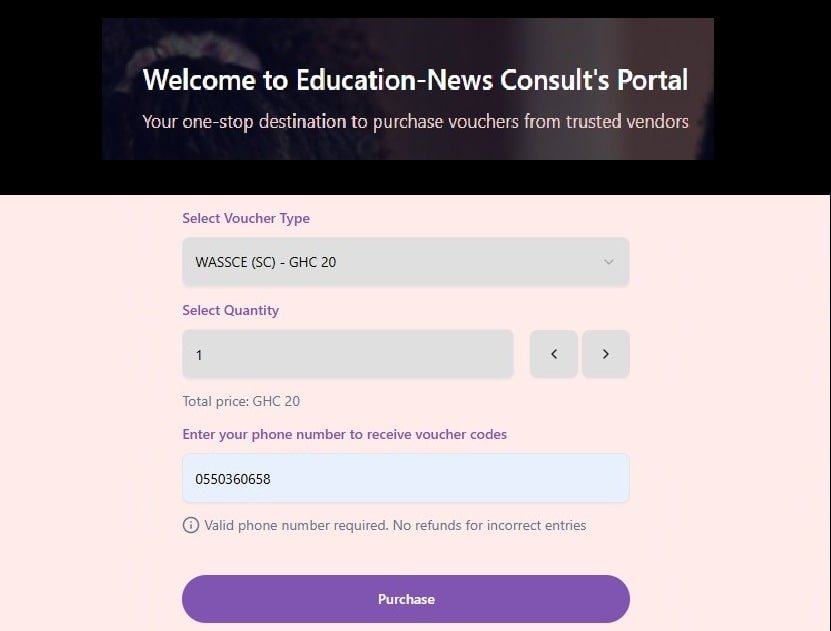The Education-News Consult has released the October 2024 BECE Mock Exam Report For 2025 BECE Candidates. The exam was administered to students in homes and schools and their performance is captured in the report you are about to read.
The report covers all 8 subject areas examined during the mock period, Whether your candidate sat the exam or not, this report will be an eye opener for teachers, candidates and parents.
October 2024 BECE Mock Exam Report For 2025 BECE Candidates
This report details the performance, strengths, and areas for improvement observed in our 2024 BECE Home Mock Examination for October 2024. It serves as constructive feedback to guide both students and parents in their preparation for the official BECE. We’ve identified specific challenges across various subjects, which we outline below, along with recommendations to support candidates’ progress.
The analysis of candidates’ performance in this BECE Home Mock for 2025 reveals a mix of promising potential and critical areas for growth across various subjects. This examination provided invaluable insights into students’ current abilities, uncovering both their strengths and challenges. While many candidates demonstrated foundational understanding and familiarity with core concepts, there were notable inconsistencies in areas such as response structure, logical reasoning, and practical application, particularly in CAD, CT and Mathematics. This report highlights these observations, drawing attention to the essential skills and practices needed for improvement.
General Observations
- Consistency with Registered Names
Candidates must use the same names they registered with consistently on all examination papers. Any variation can lead to discrepancies and confusion in the grading process. The file name was a challenge for some while others submitted files and followed with messages which make the files to get lost in chats. We also had internal challenges due to light out making the marking of Mathematics and Science a challenge for the examiner who has still not got power restored in his area.
- Adherence to Examination Format
Many candidates renumbered questions incorrectly, particularly in English Language and Social Studies. For instance, some students used sub-section headings as question numbers (e.g., “Section B” instead of the correct question number). This must be avoided as it creates difficulties in marking and can impact the grading accuracy. Candidates should strictly follow the instructions and use the exact numbering provided in the examination paper.
October 2024 BECE Mock Exam Report For 2025 BECE Candidates – English Language
Key Issues:
- Title Formatting and Centering
Essay titles were not consistently centered or answers were not accurately numbered by some candidates, leading to presentation issues that reflect poorly on organization skills. - Subject-Verb Agreement and Grammar
Frequent errors in subject-verb agreement, spelling, and punctuation were noted. Many students failed to proofread their essays, resulting in avoidable mistakes that lowered overall coherence and readability. - Essay Planning and Creativity
Essays often lacked structure, with candidates failing to plan their work. As a result, many essays were underdeveloped, lacking convincing points or logical flow. Candidates are encouraged to brainstorm and outline their ideas before writing to improve content quality. Some candidates score lower than 18/30. - Literature and Comprehension Weaknesses
There was a general weakness in literature, comprehension and summary. Many students struggled with interpreting texts, affecting their ability to answer questions accurately and insightfully.
Recommendations:
- Parents should encourage consistent practice with essay-writing exercises, focusing on structured planning and proofreading.
- Students should regularly engage in reading literature to enhance comprehension and interpretation skills.
- Grammar and spelling drills could improve accuracy and sentence structure, especially around common English errors like subject-verb agreement.
Social Studies
Key Issues:
- Answering in Note Form
Some students treated exam questions as note-taking exercises, listing points without full explanations. This approach was heavily penalized as it does not meet examination standards. - Incomplete and Misinterpreted Answers
Students often provided responses that addressed only part of the question. For instance, when discussing factors contributing to population growth, candidates provided several answers that together fall under just one of the points the examiner was looking for. Some failed to expand or explain points. When marking the examiner is expected to pretend not to know what the candidate is saying or writing until it is actually written and presented for marking.
- Answer Organization and Layout
Certain responses lacked clear organization, and candidates failed to follow proper layout formats for objective and written answers, making the marking process challenging. Do not write notes as answers for the subject.
Recommendations:
- Encourage candidates to read questions thoroughly to ensure they provide comprehensive answers.
- Parents can help students practice organizing responses effectively, ensuring they support each point with relevant explanations.
- Teachers and tutors should reinforce social studies question-answering techniques to prevent fragmented responses.
Career Technology
Key Issues:
- Misidentification of Tools and Materials
Many students could not differentiate between building materials and tools, leading to incorrect answers. This highlights a gap in foundational knowledge. - Surface Development Challenges
None of the candidates successfully answered questions on surface development, an area that should be revisited as it is a key component of the syllabus. - Reliance on Memorization
Responses often reflected rote memorization rather than a true understanding of concepts. For example, many candidates answered from memory rather than analyzing questions critically.
Recommendations:
- Encourage students to use hands-on activities where possible to understand materials and tools better.
- Parents can support practice sessions at home by reviewing foundational topics with their children.
- Educators should emphasize comprehension over memorization, prompting students to provide examples when explaining concepts.
Creative Arts and Design
Key Issues:
- Incomplete Design Process Answers
Candidates failed to illustrate the step-by-step design process, instead jumping to the final stage. This was a significant issue, as each design phase is critical to achieving a complete answer. - Weak Fundamental Knowledge in Objective Questions
A high number of incorrect responses in the objective section indicates a need to strengthen candidates’ foundational knowledge in Creative Arts.
Recommendations:
- Parents can foster artistic skills by encouraging students to practice sketching or engaging in simple design tasks.
- It is essential for candidates to follow each design phase in the order given in the question, paying attention to process-based questions.
- Teachers could use visual aids or practical sessions to improve candidates’ understanding of the creative process.
Religious and Moral Education (RME)
Key Issues:
- Handwriting and Expression
Clarity in handwriting and the structure of responses were major issues. Students need to improve their written expression to communicate their points effectively. Candidates did well in both the written and objective test and must use the same approach when answering social studies questions.
Recommendations:
- Parents should encourage students to practice handwriting and clear expression in their responses.
- Students can benefit from reviewing past papers, especially focusing on question-answering techniques that emphasize clarity and conciseness.
Integrated Science
Key Issues:
- Misunderstanding of Key Scientific Concepts
There was confusion between similar concepts, such as refraction and reflection, as well as inadequate knowledge of topics like the digestive system and types of metals. - Excessive Explanation and Irrelevant Information
Some candidates provided overly detailed answers with irrelevant information, leading to loss of marks. - Weakness in Section A (Objective)
Many students scored low in objective questions, which affects their overall grade potential.
Recommendations:
- Students should focus on understanding fundamental concepts in science, avoiding the tendency to memorize.
- Parents can encourage more reading and research on basic science topics.
- Teachers should provide guidance on precision in answering, stressing the importance of avoiding unnecessary elaboration.
MATHEMATICS
Observed Challenges in Core Mathematics Skills
- Algebra and Simplification Difficulties
- Many candidates faced difficulties with basic algebraic simplification, especially with questions that required combining terms or factoring expressions. For instance, question 2(b), which asked to simplify 3 + (2 1/3 + 1 1/6) and 5(p – 2g – r) + 3(p – g – 2r), proved challenging for candidates who missed the required steps or made errors in handling fractions and coefficients.
- Advice: Practice algebra by focusing on combining like terms, handling fractions confidently, and using brackets correctly in simplification exercises. Parents can support by encouraging practice with fraction and mixed number operations, which are foundational in algebra.
- Calculation Accuracy and Work Presentation
- Several candidates struggled with accurate calculations and presenting their work clearly. For example, in question 1(a), which involved drawing a pie chart from the breakdown of expenses (GH¢120 on food, GH¢80 on rent, GH¢40 on clothing, etc.), students who did not organize their working steps found it difficult to arrive at correct answers.
- Advice: It is essential to show each calculation step clearly, as this allows the examiner to follow the student’s thought process and award marks for correct methodology. Practicing with detailed working steps also builds clarity and confidence in problem-solving.
- Challenges with Word Problems and Applications
- Word problems, like question 4(b), which required calculating the total cost of items (two dozen eggs at GH¢17.00, four loaves of bread at GH¢9.00 each, and 13 bottles of juice at GH¢14.70 per bottle), presented challenges in identifying the correct operations and understanding how to set up the calculations.
- Advice: Regular practice with word problems is key to understanding how to translate real-world scenarios into mathematical equations. Candidates should read such questions carefully, identify the important data, and outline the steps needed to find the solution.
- Geometry and Measurement Challenges
- Geometry problems involving area and perimeter, such as question 3(a), where candidates were asked to find the area of a rectangular plot and the cost of weeding it at a given rate, revealed that many students were not confident with formula application. Errors were often made in substituting values into formulas or performing calculations.
- Advice: Candidates should memorize and practice using key formulas for area, perimeter, and cost calculations. Parents can assist by quizzing students on these formulas and encouraging practice with varied geometry problems.
- Data Representation and Interpretation
- Questions requiring data interpretation, such as question 3(c) where candidates were asked to draw a double bar graph of monthly births recorded in two towns, highlighted weaknesses in plotting and interpreting graphs. Some candidates struggled with labeling axes or keeping data points accurate.
- Advice: Understanding and accurately representing data on graphs is crucial. Practicing with different types of data, such as bar graphs and pie charts, can improve skills in this area. Parents may also provide data sets (like family budgets or survey results) for students to plot and interpret as practical exercises.
- Set Theory Confusion
- Set theory concepts, as presented in questions on subsets and intersections (e.g., listing elements of P, Q, and R and finding intersections like P∩Q), were also areas where candidates struggled. Many students confused the symbols and operations in set notation.
Recommendations for Improvement
- Daily Timed Practice
- Regularly timed exercises, especially with past BECE questions, will help candidates improve their speed and accuracy. Practicing within a set time will help them develop better time management skills.
- Focus on Mental Math and Arithmetic Basics
- Building strong arithmetic skills through daily mental math exercises can greatly benefit students. These basic skills are essential for higher-level mathematics, so parents should encourage daily practice in addition to schoolwork.
- Step-by-Step Solutions
- Writing complete, clear solutions is critical. By presenting each step in an organized way, students can gain partial credit for correct processes, even if the final answer is incorrect. This approach also ensures that students understand each part of the problem before moving to the next step.
- Practice Real-World Problem Solving
- Applying math to everyday situations can enhance understanding. Parents can create exercises based on real scenarios, like calculating the cost of items when shopping or determining distances, to help students see the relevance of math in daily life.
- Strengthen Set Theory and Data Interpretation
- Set theory and data interpretation are topics where students need more clarity. Practicing set operations and graph plotting using diverse data sources, such as weather data or monthly family expenses, can improve students’ familiarity with these concepts.
With consistent practice and targeted revision in these key areas, candidates can make substantial improvements before their BECE. Parents and students are encouraged to work together in reinforcing these skills to help students approach the final exam with confidence and competence
Examiners Report on Computing
COMPUTING
The Computing examination, based on the Basic 7 and 8 Common Core Curriculum, revealed several key insights into students’ understanding and approach to technology-related concepts. This exam tested students on various competencies, including foundational digital skills, internet literacy, basic programming concepts, and general computing principles. Here’s a breakdown of the areas where students excelled, as well as those needing improvement:
- Foundational Understanding of Computing Concepts:
- Strengths: Many students demonstrated a good understanding of basic terms such as hardware, software, and peripherals. This familiarity with terminology suggests they’ve been exposed to the theoretical parts of the syllabus and can identify components of a computer system, which is a great foundation.
- Challenges: However, some students struggled with differentiating between input and output devices or understanding the various functions of hardware components. Clearer teaching around these functions and consistent revision could help solidify these concepts.
- Digital Literacy and Internet Safety:
- Strengths: A fair number of students showed competence in identifying basic internet tools like browsers, search engines, and email platforms, reflecting a growing awareness of digital resources. This is a promising area, as digital literacy is crucial in today’s tech-driven world.
- Challenges: There was a notable weakness in internet safety and etiquette, particularly in identifying safe online practices. Students often struggled with questions on safeguarding personal information online or understanding terms like cyberbullying and phishing. More lessons on internet safety and practical discussions about responsible internet use could enhance awareness.
READ: How to Study Effectively for an Exam that Requires Critical Thinking/Application
- Programming Basics and Problem Solving:
- Strengths: In basic programming concepts, a few students showed a promising ability to understand sequence and logic, especially in identifying the correct order of simple tasks or actions. Those who demonstrated this ability tend to have a knack for computational thinking, which is a positive indicator for future skill development.
- Challenges: The majority of students struggled with basic programming language syntax and logic, particularly when asked to arrange steps in order or understand conditional statements (“if” and “else” commands). This indicates that they may be unfamiliar with hands-on programming tasks or need more guided practice. Emphasis on visual coding tools like Scratch, which make programming concepts more tangible, may benefit these students.
- Practical Use of Applications:
- Strengths: Students showed confidence in identifying common software applications like word processors, spreadsheets, and presentation software. This suggests they’re receiving adequate exposure to the theory behind software applications.
- Challenges: Unfortunately, practical application skills—such as creating simple documents or using spreadsheets for calculations—were weaker. It appears that while they know what these applications are, they may lack hands-on experience. Giving students more opportunities to use these tools in supervised settings would likely improve their comfort level and competency.
- Data Handling and Storage Concepts:
- Strengths: Many students understood the basic concepts of data storage devices, such as flash drives and hard drives, which shows familiarity with everyday storage tools.
- Challenges: However, knowledge around data handling (like saving, retrieving, and managing files) was limited. Students often couldn’t differentiate between types of storage (e.g., primary vs. secondary storage) or explain why specific storage solutions might be more efficient in particular situations. More practice with actual devices and exposure to data management could be beneficial here.
Recommendations for Improvement in Computing:
- Hands-On Practice: The best way to learn Computing is through doing. Schools should aim to create more opportunities for practical application in areas like word processing, spreadsheets, and basic programming. Even if students don’t have regular access to computers, mock activities on paper can simulate real tasks and reinforce their understanding.
- Emphasize Internet Safety: Considering today’s digital environment, understanding internet safety is essential. Practical sessions or workshops on safe browsing habits and identifying online risks could be beneficial, and discussions around cyber etiquette would improve students’ digital awareness.
- Use of Visual Aids and Interactive Tools: Many of the challenges seen, especially in programming and hardware knowledge, could be addressed with more visual aids or interactive learning tools, like Scratch for coding or virtual hardware simulators. These tools simplify complex concepts and make learning more engaging.
- Encourage Logical Thinking and Structured Answers: In problem-solving tasks, guide students to develop a structured approach by breaking down questions and answering in logical steps. Practice exercises that focus on arranging steps in the correct order or using conditional logic will help build computational thinking.
- Regular Practice with Timed Assessments: Time management is crucial, especially in exams. Setting practice tests that mimic exam conditions will help students learn to allocate their time more effectively and focus on presenting answers clearly.
Summary and Final Recommendations
This BECE Mock Examination underscores several key areas requiring attention before the official BECE. We recommend that students engage more actively with past questions and consult additional study materials to strengthen weak areas. Parents’ support in creating a conducive study environment and encouraging disciplined study habits will be crucial.
READ: Proven Strategies for Teachers to Help Students Pass BECE Exams
Each candidate has shown promise, and with focused guidance, we believe they can significantly improve in future exams. If you have questions or would like to discuss your child’s performance further, please reach out to our educational team at Education News Consult.
To strengthen performance and foster greater comprehension, it is essential for schools, teachers, and parents to focus on practical exercises, structured study habits, and continuous assessment. Regular, hands-on experience in Computing will build confidence in digital literacy, programming, and software application. Moreover, addressing common pitfalls—such as poor adherence to exam instructions and inconsistent time management—will significantly enhance clarity and accuracy in students’ responses. Emphasizing a structured approach to answering questions, along with focused study on foundational concepts, will equip students with the skills they need for the upcoming BECE exams and beyond.








Leave a Reply